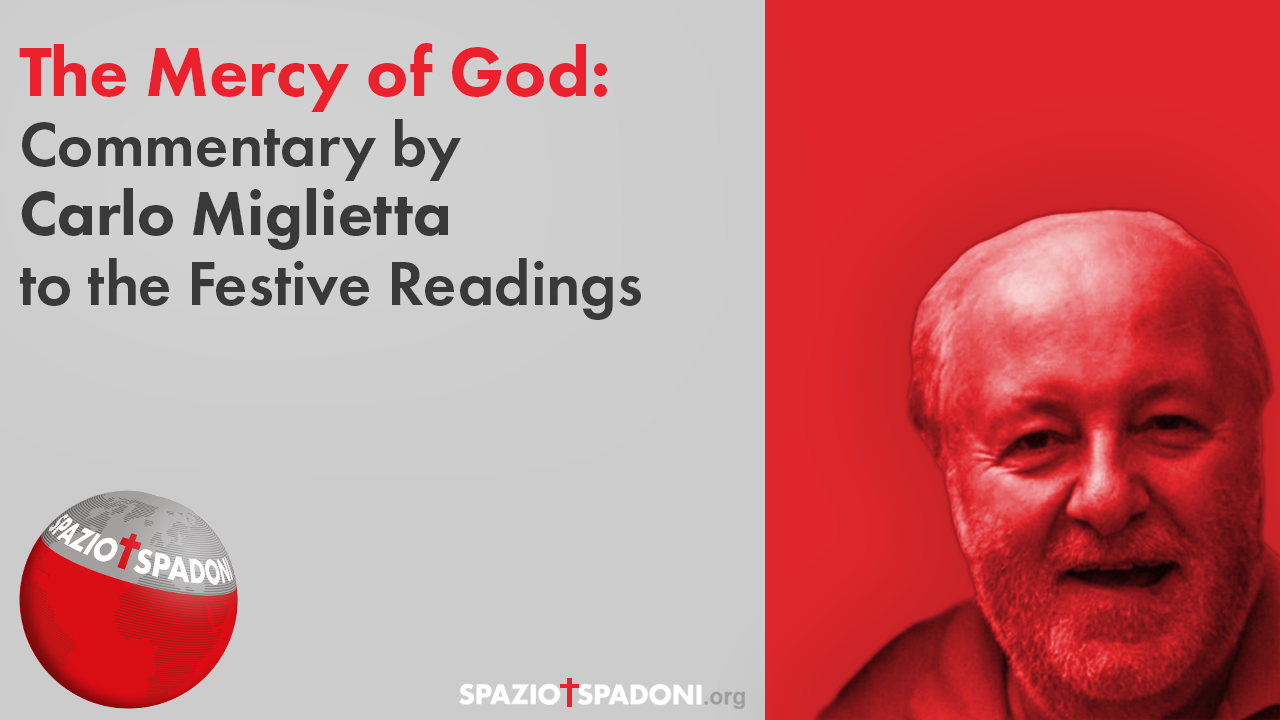
Pentecost
Readings: Acts 2:1-11; Gal 5:16-25; Jn 15:26-27; 16:12-15
“We have not even heard that there is a Holy Spirit!” (Acts 19:2), some disciples said to Paul in Ephesus: I think many who call themselves Christians today might respond in the same way. Not for nothing has the Holy Spirit been called “the Great Forgotten One.” Yet in the “Creed” we always reiterate, “I believe in the Holy Spirit, who is Lord and gives life,” and in the Fourth Eucharistic Prayer we call him the “First Gift to Believers”! Today’s Gospel calls him “Paraclete” (Jn. 15:26): the term “paràkletos” can have multiple meanings: as a passive of “parakalèin,” it is the “called near,” the defense counsel or rather, in John, the witness in favor in a trial; in active form “parakalèin” is “the one who makes himself near,” the protector, the friend, the comforter; related to “paràklesis,” it is the one who exhorts, who encourages. It is not accidental that Jerome, in translating the Gospel into Latin in the so-called Vulgate, preferred to keep the simple transliteration from the Greek, “paracletus,” to retain all meanings.
In the Old Testament we often find examples of close relationships between two characters, one of whom dies or disappears from the scene and the other takes his place, picking up his spirit: Moses and Joshua (Deut. 34:9), Elijah and Elisha (2 Kings 2:9, 15)… For John, the one he calls “another Paraclete” (14:16) is another Jesus. And since the Paraclete can come only when Jesus is gone (16:7), the Paraclete is Jesus’ presence when Jesus is absent.
He is the Spirit of truth (14:17; 15:26; 16:13; 1 Jn. 4:6; 5:6), the inner teacher of the disciples, who not only reminds them of Jesus’ teaching (14:26), but makes them understand it, guiding them to the whole truth (16:13). He also bears witness to Jesus against the world (15:26), and brings the world under judgment regarding sin, righteousness, and judgment (16:8-11). The Spirit proceeds from the Father, who sends him in Jesus’ name (14:16, 26): but Jesus also sends him independently (15:26; 16:7): the Catholic Ecumenical Councils will conclude that he is the Third Person of the Holy Trinity, who “proceeds from the Father and the Son.”
Effused on the disciples, the Spirit dwells in their hearts; in Jn 14:16-17, in a stupendous crescendo, it is not only affirmed that He is with (“metà”) the believers, but that He is at (“parà”) them, indeed in (“en”) them: they have thus become “Pneumatophores,” “Bearers of the Holy Spirit.” The Church itself is the “living temple of the Spirit” (Pref. VIII per annum). Life according to the Spirit is the condition of the Christian (De La Potterie): woe betide us if we deserve Stephen’s rebuke to the Jews, “O stubborn people and heathen in heart, you always resist the Holy Spirit!” (Acts 7:51). It is therefore necessary: “to live and feed on the Spirit…, to walk in the Spirit,…, to be guided by the Spirit, to be docile instruments in the hands of the Spirit, sound harps of prayer, fruits of the Spirit… Only thus is the Christian constituted as a ‘letter written not with ink, but with the Spirit of the living God’ (2 Cor. 3:3)” (Pedrini).
It is especially “In the Liturgy,… that the virtue of the Holy Spirit acts in us through sensible signs” (LG, no. 50): the Holy Curé of Ars said, ‘The sacraments which Christ instituted would not have saved us without the action of the Holy Spirit.’ And this is why in the celebration of every Sacrament a fundamental moment is the “epiclesis” (from “epi-kalèo,” “I invoke above”), that is, the supplication to the Father so that through the Son he may send the Holy Spirit, so that he may accomplish his outpouring of blessing and consecration.
